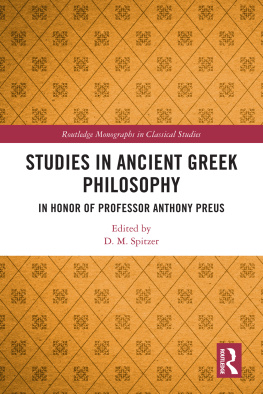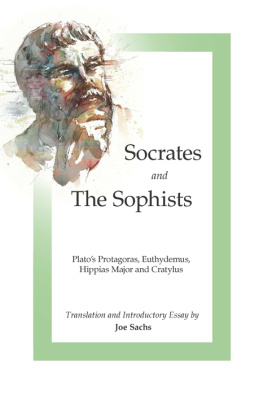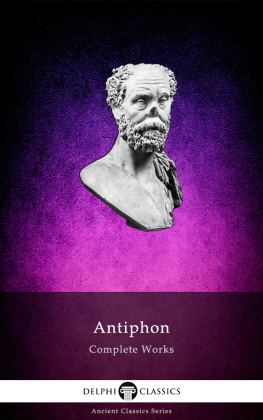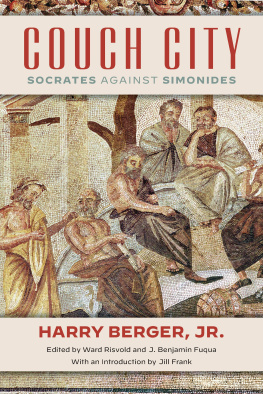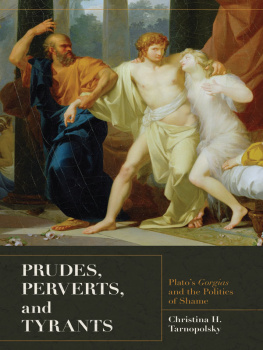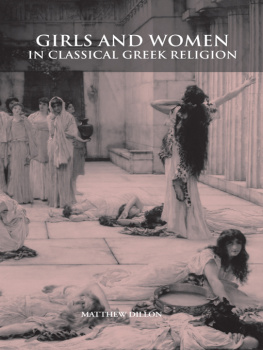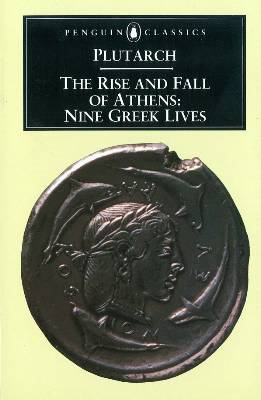JOHN DILLON was born in 1939 and educated at Downside School and Oriel College, Oxford, gaining a PhD from the University of California, Berkeley. He taught Classics at Berkeley from 1966 to 1980, returning from there to become Regius Professor of Greek at Trinity College, Dublin. His publications include The Middle Platonists (1977, 2nd edn 1996), Two Treatises of Philo of Alexandria (with David Winston, 1983), Alcinous: The Handbook of Platonism (1993), and The Heirs of Plato (2003).
TANIA LOUISE GERGEL was born in 1972 and educated at Bristol University, University College London, and Kings College, London, where she did a doctorate on Plato. She is currently lecturing in Greek language and literature at Kings College, London, and her main research interests are ancient Greek philosophy and stylistics. As well as various articles, she is now working on a book entitled Style and Argument: An Investigation of Platos Phaedo, and has also just finished editing a volume on Alexander the Great, to be published in Penguin Classics in 2003.
The Greek Sophists
Translated and with an Introduction and Notes by
JOHN DILLON and TANIA GERGEL
PENGUIN BOOKS
PENGUIN BOOKS
Published by the Penguin Group
Penguin Books Ltd, 80 Strand, London WC2R 0RL, England
Penguin Putnam Inc., 375 Hudson Street, New York, New York 10014, USA
Penguin Books Australia Ltd, 250 Camberwell Road, Camberwell, Victoria 3124, Australia
Penguin Books Canada Ltd, 10 Alcorn Avenue, Toronto, Ontario, Canada M4V 3B2
Penguin Books India (P) Ltd, 11 Community Centre, Panchsheel Park, New Delhi 110 017, India
Penguin Books (NZ) Ltd, Cnr Rosedale and Airborne Roads, Albany, Auckland, New Zealand
Penguin Books (South Africa) (Pty) Ltd, 24 Sturdee Avenue, Rosebank 2196, South Africa
Penguin Books Ltd, Registered Offices: 80 Strand, London WC2R 0RL, England
www.penguin.com
First published 2003
1
Translation, Introduction and Notes copyright John Dillon and Tania Gergel, 2003
All rights reserved
The moral right of the translators has been asserted
Except in the United States of America, this book is sold subject
to the condition that it shall not, by way of trade or otherwise, be lent,
re-sold, hired out, or otherwise circulated without the publishers
prior consent in any form of binding or cover other than that in
which it is published and without a similar condition including this
condition being imposed on the subsequent purchaser
EISBN: 9781101490716
Contents
Chronology
All dates are BC.
c.485 Birth of Protagoras, in Abdera.
c.483 Birth of Gorgias, in Leontini.
48079 Invasion of Greece by Persian king Xerxes, and his defeat, at Salamis and at Plataea.
Foundation of the Delian League under the leadership of Athens; beginnings of an Athenian maritime empire.
c.475 Birth of Antiphon, in Athens.
47069 Birth of Socrates, in Athens.
c.470 Birth of Prodicus, in Ceos.
c.460 Birth of Critias, in Athens.
460429 Political domination of Pericles at Athens; flourishing of Athenian economy, and of extreme democracy.
c.455 Birth of Thrasymachus, in Chalcedon.
Protagoras invited by Pericles to draft a law-code for the pan-Hellenic colony of Thurii in southern Italy.
c.433 Dramatic date of Platos Protagoras, presenting Protagoras, Hippias and Prodicus as visiting Athens.
Outbreak of the Peloponnesian War.
Death of Pericles.
Gorgias comes to Athens, on embassy for Leontini, and gives displays of the new rhetoric. Birth of Plato.
Peace of Nicias: interlude in war. Euthydemus and Dionysodorus active.
c.420 Birth of Alcidamas, in Elaea.
c.418 Death of Protagoras (possibly by drowning, on his way to Sicily).
Athenian capture of the island of Melos, providing the occasion for the Melian Dialogue, as presented by Thucydides (History V 84114).
414404 Second phase of the Peloponnesian War, culminating in the complete defeat of Athens.
c.412 Dramatic date of Platos Republic, featuring Thrasymachus (in Book I).
Short-lived oligarchic coup of the Four Hundred, in which Antiphon was involved, and which led to his death.
4043 Regime of Thirty Tyrants, dominated by Critias, which leads to his death in 403.
c.400 Death of Prodicus.
Trial and execution of Socrates.
c.395 Death of Hippias.
c.375 Death of Gorgias.
Introduction
HISTORICAL BACKGROUND
Athens, in the middle of the fifth century BC, was one of the most intellectually lively societies the world has ever seen. Having been instrumental in the spectacular and quite unanticipated triumph over a (numerically) vastly superior invading Persian expeditionary force in 480/79, the city-state of Athens, over the next half-century, built itself up into the political, economic and cultural powerhouse of Greece. It employed fairly ruthless tactics to transform, by easy stages, an original anti-Persian defensive alliance (the so-called Delian League) into a straightforward maritime empire, largely by the device of commuting contributions of men and ships to the allied forces into a system of money payments, which became an imperial tribute. Ultimately (4543 BC), the treasury of the League was moved from the island of Delos to Athens, and Pericles, the great leader of Athens in the mid-century, authorized the use of a proportion of the moneys accruing to the treasury for the beautification of the city, particularly in respect of the reconstruction of the buildings on the Acropolis, most spectacular of which was the Parthenon, the temple of the goddess Athena, patron deity of the city.
In the same period, domestically, Athens became by stages (culminating in the reforms of Pericles and Ephialtes in around 458 BC) an extreme participatory democracy, ruled by a sovereign assembly (with a quorum of 6,000 male citizens), and by those popular orators who were able to command the attention and allegiance of the common people. A situation thus arose in which, while the people were officially all-powerful, and office-holders weak and transitory frequently selected by lot, and never for longer than a year, with public scrutinies before and after leaving office in fact a prosperous, and sometimes extremely rich, elite also flourished, and managed to extend its influence from the social and economic into the political sphere, while at the same time remaining vulnerable to vexatious lawsuits directed at its members through the popular courts. A premium was thus placed, if one were well-off and aspired to a public career (or even to hold ones own in a private law-suit), on acquiring a facility in public speaking.
Athens, we must remember, never developed any system of higher education indeed, little more than what we would regard as primary education (ending at about the age of fourteen) was ever the norm, and even that was privately funded so that, as a demand arose for further training in the arts of thinking and speaking, a gap in the market manifested itself that cried out to be filled. And filled it duly was, by a remarkable series of individuals, coming from various parts of the Greek world but converging on Athens like flies to a honey-pot those individuals whom we term collectively the sophists.


